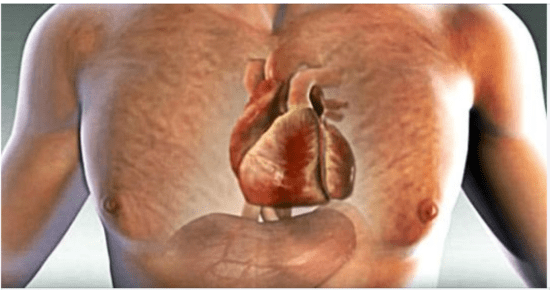Leading a healthy lifestyle is crucial for maintaining good heart health, especially as we get older. If you’re between 45 and 65 years old, it’s important to pay attention to the warning signals your body gives you. By making simple changes and being aware of potential heart attack symptoms, you can protect your heart and reduce the risk of serious health issues.

Shortness of Breath: Don’t Ignore It
Feeling breathless or finding it difficult to catch your breath may indicate that your heart is struggling to pump blood and oxygen efficiently. If you experience this symptom, it’s essential to contact your physician right away. Don’t ignore it, as it could be a warning sign of a heart problem.
Cold and Flu Symptoms: Look Out for More
Feeling sick with cold or flu-like symptoms might seem like a common illness, but if you notice other accompanying symptoms, it could indicate a more serious issue. Pay attention to any additional signs and consult with your doctor if you have any concerns.
Chest Pressure: Seek Medical Attention
Experiencing chest pain or pressure is a clear warning sign that a heart attack may be imminent. It’s crucial not to ignore this symptom and seek immediate medical attention. Your doctor can provide guidance and necessary treatment to prevent further complications.
Weakness: Listen to Your Body
Consistent feelings of fatigue and weakness can be indications of a weakened heart. Just like our muscles, our heart relies on proper blood and oxygen supply. If you notice persistent weakness, consult with your physician to understand the underlying cause and get the right care.
Cold Sweats and Dizziness: Pay Attention
When blood circulation is compromised, it can disrupt the flow of blood to the brain, leading to cold sweats and dizziness. Proper blood flow is essential for optimal brain function. If you experience these symptoms, it’s important to address them promptly and seek medical advice.
Sleepiness: Don’t Underestimate It
Feeling excessively tired and sleepy, even after getting enough rest, could be due to insufficient blood being pumped into the heart. If you notice ongoing sleepiness, it’s important to seek medical advice. Your doctor can evaluate your symptoms and recommend appropriate interventions.
Take Action to Protect Your Heart
Preventing heart attacks starts with recognizing and addressing warning signs. By taking these symptoms seriously and seeking medical attention, you significantly reduce the risk of experiencing a heart attack. Prioritizing your heart health can have life-changing benefits. Make healthier choices, incorporate fruits and vegetables into your diet, get sufficient sleep, manage stress levels, and listen to what your body is telling you. Your heart deserves the best care possible.





